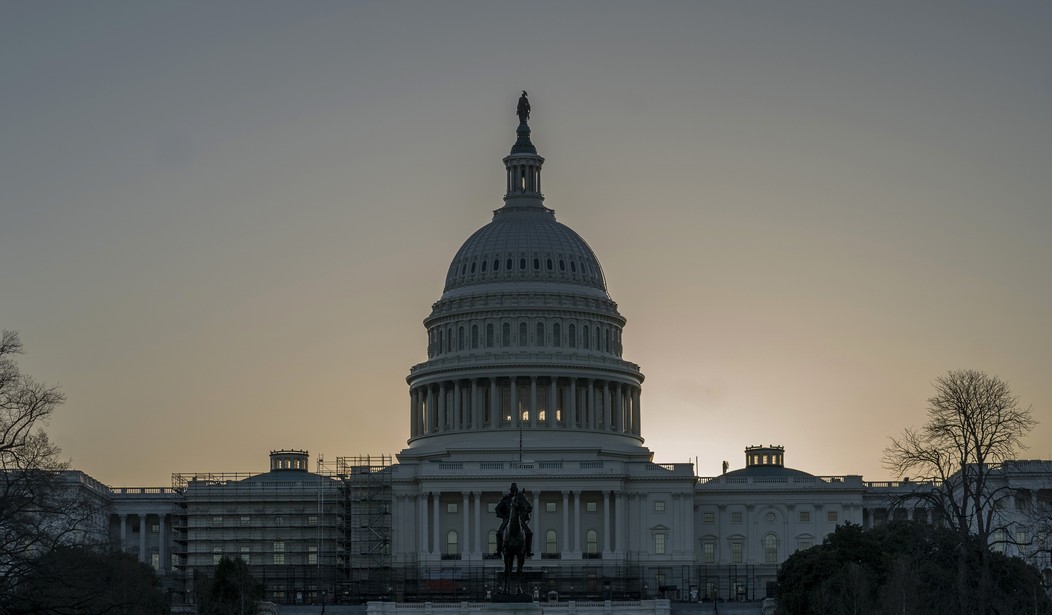I just returned from the Organization for Economic Co-operation and Development (OECD) in Paris with my colleagues on the Ways and Means Committee to send a clear message that the current global tax deal is dead on arrival in Congress. After the Biden administration ignored Congress and moved froward with questionable negations, the OECD is moving forward with a proposed global tax deal that will implement a minimum global corporate tax that will both disproportionally target U.S. companies and disadvantages U.S. competitiveness.
Unfortunately, this international tax shakeup is just the start of historic changes to the U.S.'s entire tax code that are coming to a head in 2025. Alongside the global minimum tax, domestic business tax provisions created under the 2017 Tax Cuts and Jobs Act (TCJA) are set to expire.
As the U.S. continues to assess its supply chain concerns and the national security and human rights threats posed by the Chinese Communist Party (CCP), we need to ensure a pro-growth tax code that will give all American businesses the long-term certainty they need to invest domestically and patriciate in the global economy.
On the domestic front, many provisions from TCJA are expiring, phasing out, or have already expired. Washington is making it hard for businesses to plan long-term and compete with the CCP. The corporate tax rate is set to return to 35 percent in 2025 (currently at 21 percent), if progressives get their way. This will have a negative effect on investment and jobs to the United States. Simply look to my home state of California to see how increasing taxes and regulations push investments and companies away. Congress must ensure that businesses can make new investments and allow them to deduct the cost of new investments right away. We must allow our businesses to have the ability for 100 percent bonus depreciation and make this provision permanent; it is currently being phased and ending in 2026. Full and immediate expensing empowers companies to invest today and leads to economic growth and better wages.
Recommended
Even more critically, until 2021, businesses in the U.S. could fully expense their Research and Development (R&D). Currently, they must now spread out their R&D expenses over five years. This is unacceptable. R&D plays an essential role in creating good-paying jobs across the country, and in Southern California where my constituents work and live. This critical research is safest when done within the United States, where we must ensure our adversaries cannot steal our critical research. Due to this lapse, we are at a disastrous competitive disadvantage. China, for example, allows companies to deduct 200 percent of their R&D, which is guaranteed to lead to CCP innovation.
The OECD global tax deal is confusing and puts U.S. multinational companies on the hook for new tax liabilities across the globe. Now is not the time for U.S. companies to be forced to figure out how to comply with this new progressive tax system.
The U.S. already established international tax policy under TCJA that has been ignored by the Biden administration and the OECD. We cannot allow other countries to dictate an unfair treatment of U.S. domestic and foreign tax credits. Even more alarming as these rules take shape is that China has not given any assurances that they will comply with this international agreement. In fact, they continue massive state subsidies and will keep preventing Western audits of their companies.
At a time when we need to give our economy and U.S. businesses more certainty to plan for the future, Congress and the Biden administration must put pro-growth tax policies in place that will allow for long term planning, domestic investments, and the ability to move supply chains back to the U.S. and to trusted allies across the global. Domestic and international tax policy is coming to a head in 2025 and, if Washington doesn’t step up and address these issues, all businesses from Main Street to Wall Street will suffer.
























Join the conversation as a VIP Member